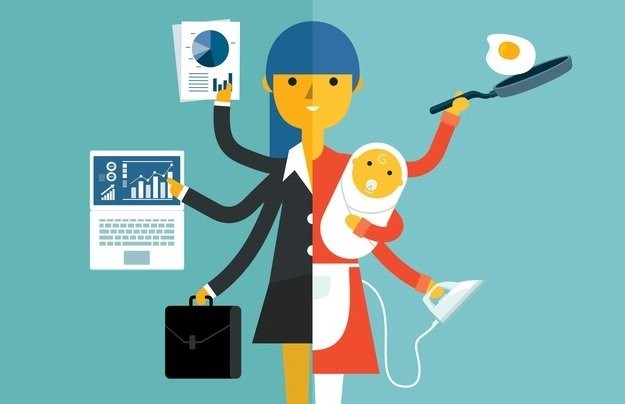The Modern Female: Balancing Career and Family

The modern woman faces a unique set of challenges and opportunities as she navigates the dual responsibilities of managing a career and maintaining a family. Unlike previous generations, today’s women are more empowered and educated, with greater access to professional opportunities. However, this progress often comes with the complex task of balancing career aspirations with family responsibilities. This article explores the dynamic landscape of the modern woman’s life, examining the strategies, challenges, and societal changes that influence her ability to balance career and family.
Historical Context
Historically, women’s roles were largely confined to domestic spheres, with limited access to education and professional opportunities. The feminist movements of the 20th century, particularly the second wave in the 1960s and 1970s, played a critical role in challenging these traditional roles. As a result, women began to enter the workforce in greater numbers, seeking not only financial independence but also personal fulfillment and professional achievement.
The Modern Landscape
In today’s world, women have made significant strides in various fields, from corporate leadership to entrepreneurship. According to a 2023 study by McKinsey & Company, women now hold 29% of senior management roles globally, a significant increase from previous decades. However, this progress has not come without its challenges. The modern woman often finds herself juggling multiple roles – a professional, a mother, a partner, and a caregiver.
Challenges Faced
- Work-Life Balance: One of the most significant challenges is maintaining a healthy work-life balance. The demands of a high-powered career can often conflict with family responsibilities, leading to stress and burnout.
- Societal Expectations: Despite advancements, societal expectations and traditional gender roles still exert pressure on women. They are often expected to be the primary caregivers and manage household responsibilities, even while pursuing their careers.
- Discrimination and Bias: Women still face discrimination and bias in the workplace. Issues such as the gender pay gap, limited access to leadership roles, and workplace harassment remain prevalent.
- Childcare and Parental Leave: Access to affordable childcare and adequate parental leave policies is crucial for working mothers. However, many women still struggle with inadequate support systems.
Strategies for Balancing Career and Family
- Time Management: Effective time management is essential. Prioritizing tasks, setting realistic goals, and delegating responsibilities can help manage both professional and personal duties efficiently.
- Support Systems: Building a strong support system is crucial. This includes partners, family members, friends, and professional networks. Sharing responsibilities and seeking help when needed can alleviate some of the pressures.
- Flexible Work Arrangements: Advocating for flexible work arrangements, such as remote work, flexible hours, or part-time positions, can provide the necessary balance between career and family life.
- Self-Care: Taking time for self-care is vital. Engaging in activities that promote mental and physical well-being can help mitigate stress and improve overall quality of life.
- Professional Development: Continuous professional development and networking can help women stay competitive in their careers, while also providing opportunities for mentorship and support.
Societal and Policy Changes
To support the modern woman in her dual roles, societal and policy changes are necessary. These include:
- Parental Leave Policies: Implementing and enforcing comprehensive parental leave policies that support both mothers and fathers.
- Childcare Support: Investing in affordable and accessible childcare services to ease the burden on working parents.
- Workplace Equality: Promoting gender equality in the workplace through policies that address pay equity, career advancement, and workplace harassment.
- Cultural Shifts: Encouraging cultural shifts that challenge traditional gender roles and promote shared domestic responsibilities between partners.
Conclusion
The modern woman embodies resilience, adaptability, and determination as she navigates the complexities of balancing career and family. While significant progress has been made, ongoing efforts are required to address the challenges and create a more supportive environment. By implementing effective strategies and advocating for societal and policy changes, the modern woman can achieve a fulfilling and balanced life, contributing to both her professional field and her family.
